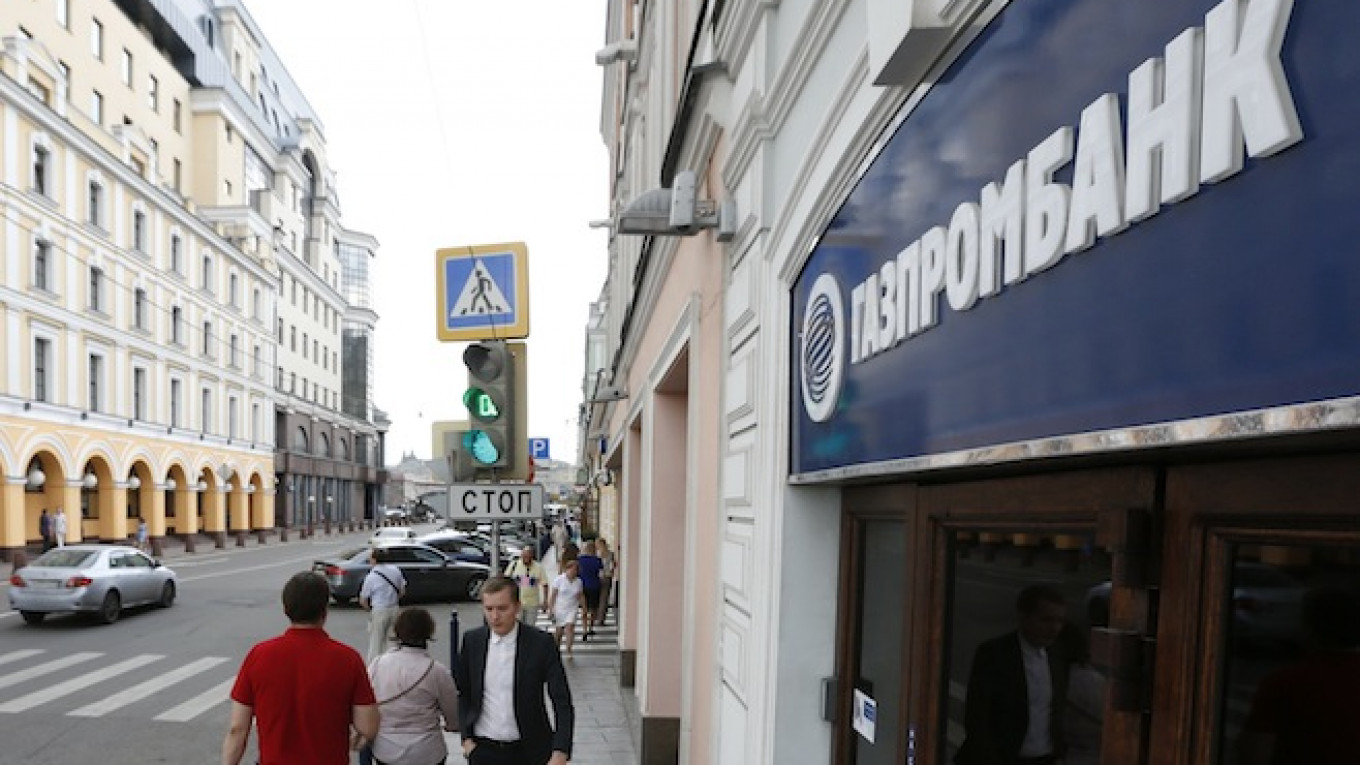LONDON — Russian bank and company bonds denominated in dollars and euros have slumped in value in the past few days in anticipation of tough European Union sanctions.
The EU has already slapped sanctions such as asset freezes and travel bans on some Russian officials after Russia annexed Ukraine's Crimea region earlier this year and began supporting separatists fighting Kiev's forces in eastern Ukraine.
The United States has also issued six rounds of sanctions, with its toughest imposed on July 16.
But the downing on July 17 of a Malaysian airliner over Ukraine, killing all 298 people on board, has led European leaders to beef up their own measures.
EU policymakers will meet on Tuesday to discuss whether to impose further sanctions, including the closure of capital markets within the 28-country bloc to majority state-owned Russian banks. The measures would not affect current supplies of oil, gas and other commodities from Russia.
"The EU has been much more proactive than anyone expected a few months back," said Manik Narain, an emerging FX strategist at UBS. "In this environment, investors are pretty wary about Russian assets."
Gazprombank and Sberbank, both majority-owned by the Russian government, issued euro-denominated bonds only a few weeks ago, when investors were far more optimistic about a resolution to the Ukraine crisis.
The two banks' recent bonds both fell two cents on the dollar on Monday, bringing losses since launch to around eight cents on the dollar.
"Trading was destructive in nature," said one dealer.
But the bonds of Russian companies less likely to be targeted by sanctions have also been hit, as investors scramble to exit Russian assets broadly and liquidity dries up.
"What you would like to sell is not necessarily what you can sell," said Zsolt Papp, head of emerging debt client portfolio strategies at JPMorgan Asset Management.
"Liquidity issues have meant that some of the companies and some of the sectors that may not be affected by any sanctions are also suffering," Papp said.
Russia's No. 2 oil producer LUKoil is one firm highlighted by analysts at Barclays as particularly reliant on Eurobond financing.
Its dollar bond maturing in November 2014 fell 0.4 cents on the dollar on Monday to its lowest in over four years, although it continues to trade above par.
Rosneft's 2022 dollar bond, meanwhile, fell 0.83 cents on Monday to about 85 cents on the dollar after The Hague's arbitration court ruled Russia must pay a group of shareholders in oil giant Yukos $51.6 billion for expropriating its assets. Most of the now-defunct Yukos' assets were acquired by Rosneft in auctions.
"Investors are not sure where the next shoe might drop," said David Spegel, head of emerging market debt strategy at French bank BNP Paribas.
Investors were "combing through the companies looking for which management structures are closely aligned to government and will be most likely to see further sanctions," he added.
See also:
EU Reaches Initial Deal on Russia Sanctions, Spares Gas
Outflow from Russia Funds Hits 6-Month High After Plane Crash
A Message from The Moscow Times:
Dear readers,
We are facing unprecedented challenges. Russia's Prosecutor General's Office has designated The Moscow Times as an "undesirable" organization, criminalizing our work and putting our staff at risk of prosecution. This follows our earlier unjust labeling as a "foreign agent."
These actions are direct attempts to silence independent journalism in Russia. The authorities claim our work "discredits the decisions of the Russian leadership." We see things differently: we strive to provide accurate, unbiased reporting on Russia.
We, the journalists of The Moscow Times, refuse to be silenced. But to continue our work, we need your help.
Your support, no matter how small, makes a world of difference. If you can, please support us monthly starting from just $2. It's quick to set up, and every contribution makes a significant impact.
By supporting The Moscow Times, you're defending open, independent journalism in the face of repression. Thank you for standing with us.
Remind me later.






